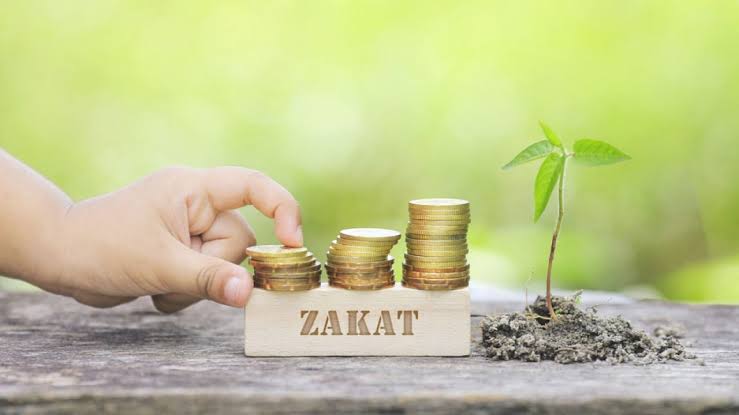Introduction: The third pillar of Islam in its fifth position is Zakat. The ordinance of Zakat was revealed in the 2nd Hijri. It is an economic worship. In the Holy Quran, the ordinance of Zakat is mentioned with utmost importance. The message of Zakat has come in nearly 32 places in the Holy Quran. In order to make the Islamic society free from poverty and self-reliant, the Holy Quran has repeatedly emphasized the giving of Zakat.
Identification of Zakat:
Zakat is an important ordinance in Islam. It is an economic worship. It is essential for wealthy individuals. The obligation and importance of Zakat have been proved through many verses of the Holy Quran and numerous Hadiths. If someone denies the obligation of Zakat, they are considered as disbeliever.
The word Zakat is used metaphorically to mean purity and growth. By paying Zakat, one obtains purity from the sins of stinginess. Along with that, the remaining wealth becomes purified and it leads to an increase in wealth. That’s why it is called Zakat. In terminology, the definition of Zakat is made as follows: The Creator’s command to designate a portion of the specified property as the owner’s Hashimi or someone else’s, excluding slaves, for the satisfaction of Allah Ta’ala, so that there is no opportunity for the Zakat payer to benefit from the property.
Definition of Nezab:
Zakat is a compulsory provision for the wealthy. However, it is not equally obligatory on every wealthy person. It depends on the specified limits and amounts of property. Such property is called Nezab. Depending on it, every economic worship becomes essential. The word ‘Nezab’ is Arabic. Its literal meaning is the actual condition or the place of return. In Shariah, Nezab means the amount of wealth designated to be given, which, if there is such wealth, makes it obligatory to perform the economic worship of Zakat and Fitrah.
Nezab of Zakat:
Zakat’s Nezab is calculated on four types of property: (1) Gold and silver, (2) Commercial goods, (3) Livestock that is maintained in the pasture most of the year excluding the owner’s food, (4) The amount of cash equivalent to seventy tolas of gold or fifty-two tolas of silver. In determining the Nezab, the value of gold and silver is considered as the basis for determining the amount.
Zakat Guidelines:
Gold and Silver Nisab:
Based on the Quran and Sunnah, it is unanimously agreed upon that the nisab for silver is two hundred dirhams and for gold is twenty mithqal. Research has shown that the equivalent of two hundred dirhams of silver is approximately equal to seventy-two grams and the equivalent of twenty mithqal of gold is approximately equal to eighty-seven grams. Therefore, if someone possesses seventy-two grams of silver or eighty-seven grams of gold or their equivalent in assets used for adornment, then zakat becomes obligatory upon them. Similarly, if someone possesses an amount equal to the nisab of silver or gold in cash, they must pay zakat at the current rate, which is approximately 2.50%.
Zakat on Business Goods:
If the value of business goods reaches the nisab in gold or silver, regardless of the nature of the goods, zakat becomes obligatory on them annually. Therefore, if someone purchases vehicles, houses, land, etc., for business purposes and a year passes over them, zakat becomes obligatory on them. The Prophet Muhammad (peace be upon him) instructed us to pay zakat from the wealth we prepare for business. (Abu Dawood, Hadith No. 1562)
Determining the Nisab of Various Assets:
If someone possesses some gold or silver, some cash, and some business goods, and none of them individually reach the nisab, but their combined value equals the nisab of silver or gold, then zakat becomes obligatory. According to a specific opinion of HazratJubayr ibn Abdullah (may Allah be pleased with him), zakat was calculated by combining gold with silver or silver with gold. Zakat must be paid from the principal wealth, not from zakat-eligible assets. However, paying zakat with money or other items is also acceptable. There are differing opinions among scholars on this matter. Still, the fundamental difference lies in the perception of zakat’s essence—is it solely an act of worship or also a right of the needy? In reality, both aspects are plausible.
Imam Shafi’i and Imam Ahmad (may Allah have mercy on them) emphasized the worship aspect of zakat and stated that zakat should be paid from the wealth upon which it has become due. Conversely, Imam Abu Hanifa and his followers emphasized fulfilling the right of the needy by paying zakat with the value of wealth.
Validity of Payment in Kind:
The evidence for the validity of payment in kind includes verses from the Quran and numerous hadiths indicating that the Prophet Muhammad (peace be upon him) and his companions accepted zakat in various forms, such as crops, clothing, etc.
Definition of Zakat:
The term zakat carries the meanings of purity and growth. The Quranic and linguistic definitions of zakat encompass both spiritual purity and material growth. According to Islamic law, zakat is obligatory on a Muslim adult who possesses wealth equal to or exceeding the nisab amount. If a year passes over, they must pay zakat at the prescribed rate and distribute it among the eligible recipients.
Nisab Amount:
Nisab refers to a specific amount. Islamic law has determined a specific amount for zakat to become obligatory, known as the nisab. In Islam, four types of wealth are zakat-eligible, each with its nisab.
Gold and Silver Nisab for Zakat 2024
Silver –Form the value of 612.36g of silver
Gold – Form the value of 87.48g of gold

